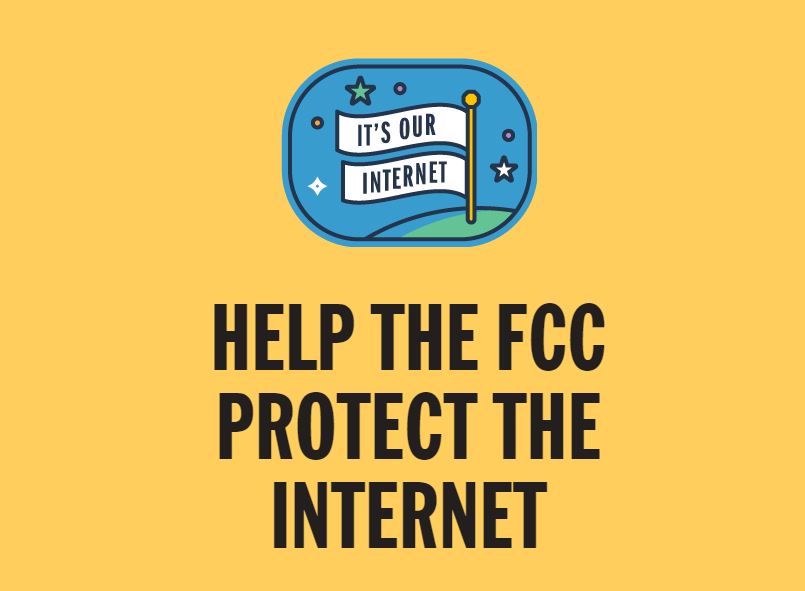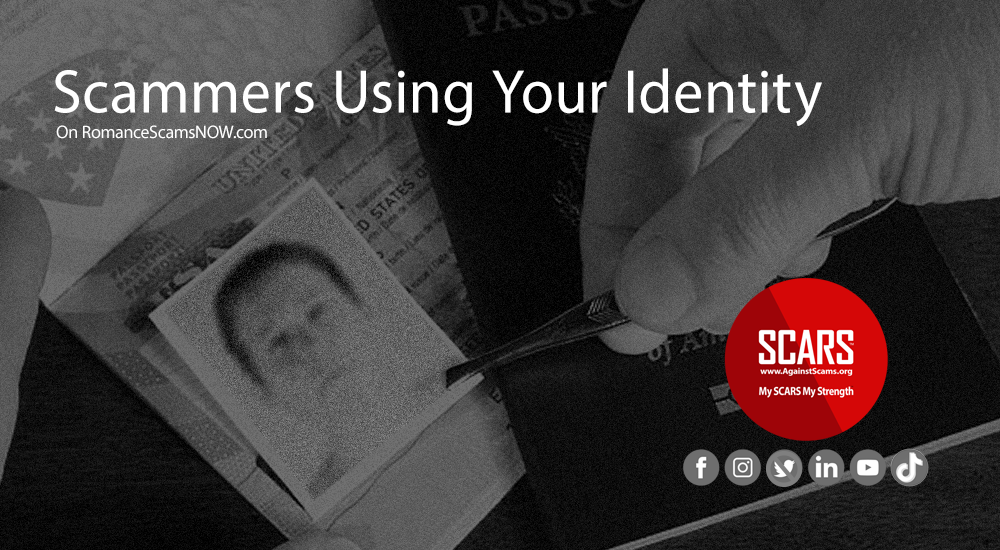
SCARS Institute’s Encyclopedia of Scams™ Published Continuously for 25 Years

Identity Theft: When Scammers Steal Your Photos To Impersonate You!
Where are the boundaries and limits of impersonation and identity theft, and what can we all do about it?
Scammers Steal Photos on Social Media to Impersonate People and Steal Their identities
Social media has become an essential part of our lives and has a massive problem with identity theft. With billions of people using platforms like Facebook, Instagram, and Twitter to connect with friends and family, share photos and videos, and stay up-to-date on the latest news and trends it is a rich ground for criminals looking to steal identities. This vast and interconnected network of users has also made it a target for scammers.
One of the most common identity theft scams on social media involves scammers stealing photos of real people and using them to create fake profiles. These fake profiles are then used to impersonate the real person, often in order to scam unsuspecting victims.
There are many ways that scammers can steal photos from social media. One way is to simply download the photos from the real person’s profile. Another way is to use a bot or other automated tool to scrape photos from multiple profiles. Scammers can also steal photos from data breaches, which are when large amounts of personal information, including photos, are stolen from companies or organizations.
Once the scammer has stolen a photo (stolen an identity,) they can use it to create a fake profile that looks very similar to the real person’s profile. The scammer may then use the fake profile to friend or follow the real person’s friends and family. The scammer may also use the fake profile to post comments or messages that are designed to make it seem like they are the real person.
Once the scammer has gained the trust of the real person’s friends and family because of the identity theft, they may start to ask for money or other personal information. The scammer may also try to convince the victim to click on a link that will take them to a fake website that is designed to steal their personal information.
What Do They Do With Stolen Identities?
After the criminals commit identity theft, here are some of the things that scammers and cybercriminals do with stolen photos to steal and scam people online:
- Create fake profiles: They can use the stolen photos to create fake profiles on social media, dating apps, or other online platforms. These fake profiles can then be used to impersonate the real person, often in order to scam unsuspecting victims.
- Request money or other personal information: Scammers can use the stolen photos to request money or other personal information from unsuspecting victims. They may claim to be in need of financial assistance, or they may try to trick the victim into giving them their personal information by posing as a legitimate company or organization.
- Commit full identity theft: Scammers can use the stolen photos to commit identity theft. This can involve using the stolen photos to open new credit accounts, apply for loans, or even travel under the victim’s name.
- Blackmail: Scammers can use the stolen photos to blackmail the victim. They may threaten to post the photos online or share them with the victim’s friends and family if the victim does not pay them money or do something else they want.
- Harass or stalk: Scammers can use the stolen photos to harass or stalk the victim. They may send the victim threatening messages, post embarrassing photos of the victim online, or even try to track down the victim’s physical location.
Be Careful About This
If you receive a friend request or message from someone you don’t know, be careful before accepting it. Do a quick Google search to see if the person’s profile is real. If you’re still not sure, you can always ask the person to verify their identity by sending you a photo of themselves holding up a piece of paper with your name on it.
Never give out personal information, such as your Social Security number or bank account number, to someone you don’t know and trust. If you think you may have been scammed, contact the social media platform where the scam occurred and report it. You should also contact your bank or credit card company to put a fraud alert on your account.
By being aware of the risks and taking steps to protect yourself, you can help avoid becoming a victim of a scam.
Here are some additional tips to help you protect yourself from scammers on social media:
- Be careful about what information you share online. Only share information that you are comfortable with everyone knowing.
- Be wary of friend requests from people you don’t know. Don’t accept friend requests from people you don’t know or trust.
- Be careful about clicking on links in messages or posts. Scammers often use links to redirect victims to fake websites that are designed to steal their personal information.
- Keep your software up to date. Software updates often include security patches that can help protect you from scams.
- Use a firewall and antivirus software. A firewall can help block malicious traffic from reaching your computer, and antivirus software can help detect and remove malware.
By following these tips, you can help protect yourself from scammers on social media.
Please Watch This Guardian Video:
Warning: The video contains adult content & situations


About Stolen Photos
- Stolen Photos – SCARS™ Scam Basics (romancescamsnow.com)
- If Your Photos Are Being Used By Scammers – Stolen Photos (romancescamsnow.com)
- Stolen Photos – Impersonation Victims – Women Adult Models & Video Stars (romancescamsnow.com)
- Stolen Photos – Impersonation Victims – Military • Celebrities • Doctors • More (romancescamsnow.com)
- Inside Those Stolen Photos! Metadata! (romancescamsnow.com)
- Accusations Against Persons In Stolen Photos (romancescamsnow.com)
More:
-/ 30 /-
What do you think about this?
Please share your thoughts in a comment below!
Table of Contents
- About Protecting Yourself From Impersonation
- Identity Theft: When Scammers Steal Your Photos To Impersonate You!
- Scammers Steal Photos on Social Media to Impersonate People and Steal Their identities
- What Do They Do With Stolen Identities?
- Be Careful About This
- Please Watch This Guardian Video:
- About Stolen Photos
- More:
LEAVE A COMMENT?
Recent Comments
On Other Articles
- velma faile on Finally Tax Relief for American Scam Victims is on the Horizon – 2026: “I just did my taxes for 2025 my tax account said so far for romances scam we cd not take…” Feb 25, 19:50
- on Reporting Scams & Interacting With The Police – A Scam Victim’s Checklist [VIDEO]: “Yes, this is a scam. For your own sanity, just block them completely.” Feb 25, 15:37
- on Danielle Delaunay/Danielle Genevieve – Stolen Identity/Stolen Photos – Impersonation Victim UPDATED 2024: “She goes by the name of Sanrda John now” Feb 25, 10:26
- on Reporting Scams & Interacting With The Police – A Scam Victim’s Checklist [VIDEO]: “So far I have not been scam out of any money because I was aware not to give the money…” Feb 25, 07:46
- on Love Bombing And How Romance Scam Victims Are Forced To Feel: “I was love bombed to the point that I would do just about anything for the scammer(s). I was told…” Feb 11, 14:24
- on Dani Daniels (Kira Lee Orsag): Another Scammer’s Favorite: “You provide a valuable service! I wish more people knew about it!” Feb 10, 15:05
- on Danielle Delaunay/Danielle Genevieve – Stolen Identity/Stolen Photos – Impersonation Victim UPDATED 2024: “We highly recommend that you simply turn away form the scam and scammers, and focus on the development of a…” Feb 4, 19:47
- on The Art Of Deception: The Fundamental Principals Of Successful Deceptions – 2024: “I experienced many of the deceptive tactics that romance scammers use. I was told various stories of hardship and why…” Feb 4, 15:27
- on Danielle Delaunay/Danielle Genevieve – Stolen Identity/Stolen Photos – Impersonation Victim UPDATED 2024: “Yes, I’m in that exact situation also. “Danielle” has seriously scammed me for 3 years now. “She” (he) doesn’t know…” Feb 4, 14:58
- on An Essay on Justice and Money Recovery – 2026: “you are so right I accidentally clicked on online justice I signed an agreement for 12k upfront but cd only…” Feb 3, 08:16
ARTICLE META
Important Information for New Scam Victims
- Please visit www.ScamVictimsSupport.org – a SCARS Website for New Scam Victims & Sextortion Victims
- Enroll in FREE SCARS Scam Survivor’s School now at www.SCARSeducation.org
- Please visit www.ScamPsychology.org – to more fully understand the psychological concepts involved in scams and scam victim recovery
If you are looking for local trauma counselors please visit counseling.AgainstScams.org or join SCARS for our counseling/therapy benefit: membership.AgainstScams.org
If you need to speak with someone now, you can dial 988 or find phone numbers for crisis hotlines all around the world here: www.opencounseling.com/suicide-hotlines
A Note About Labeling!
We often use the term ‘scam victim’ in our articles, but this is a convenience to help those searching for information in search engines like Google. It is just a convenience and has no deeper meaning. If you have come through such an experience, YOU are a Survivor! It was not your fault. You are not alone! Axios!
A Question of Trust
At the SCARS Institute, we invite you to do your own research on the topics we speak about and publish, Our team investigates the subject being discussed, especially when it comes to understanding the scam victims-survivors experience. You can do Google searches but in many cases, you will have to wade through scientific papers and studies. However, remember that biases and perspectives matter and influence the outcome. Regardless, we encourage you to explore these topics as thoroughly as you can for your own awareness.
Statement About Victim Blaming
SCARS Institute articles examine different aspects of the scam victim experience, as well as those who may have been secondary victims. This work focuses on understanding victimization through the science of victimology, including common psychological and behavioral responses. The purpose is to help victims and survivors understand why these crimes occurred, reduce shame and self-blame, strengthen recovery programs and victim opportunities, and lower the risk of future victimization.
At times, these discussions may sound uncomfortable, overwhelming, or may be mistaken for blame. They are not. Scam victims are never blamed. Our goal is to explain the mechanisms of deception and the human responses that scammers exploit, and the processes that occur after the scam ends, so victims can better understand what happened to them and why it felt convincing at the time, and what the path looks like going forward.
Articles that address the psychology, neurology, physiology, and other characteristics of scams and the victim experience recognize that all people share cognitive and emotional traits that can be manipulated under the right conditions. These characteristics are not flaws. They are normal human functions that criminals deliberately exploit. Victims typically have little awareness of these mechanisms while a scam is unfolding and a very limited ability to control them. Awareness often comes only after the harm has occurred.
By explaining these processes, these articles help victims make sense of their experiences, understand common post-scam reactions, and identify ways to protect themselves moving forward. This knowledge supports recovery by replacing confusion and self-blame with clarity, context, and self-compassion.
Additional educational material on these topics is available at ScamPsychology.org – ScamsNOW.com and other SCARS Institute websites.
Psychology Disclaimer:
All articles about psychology and the human brain on this website are for information & education only
The information provided in this article is intended for educational and self-help purposes only and should not be construed as a substitute for professional therapy or counseling.
While any self-help techniques outlined herein may be beneficial for scam victims seeking to recover from their experience and move towards recovery, it is important to consult with a qualified mental health professional before initiating any course of action. Each individual’s experience and needs are unique, and what works for one person may not be suitable for another.
Additionally, any approach may not be appropriate for individuals with certain pre-existing mental health conditions or trauma histories. It is advisable to seek guidance from a licensed therapist or counselor who can provide personalized support, guidance, and treatment tailored to your specific needs.
If you are experiencing significant distress or emotional difficulties related to a scam or other traumatic event, please consult your doctor or mental health provider for appropriate care and support.
Also read our SCARS Institute Statement about Professional Care for Scam Victims – click here to go to our ScamsNOW.com website.
















Thank you for your comment. You may receive an email to follow up. We never share your data with marketers.